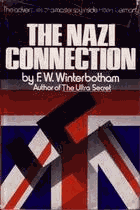
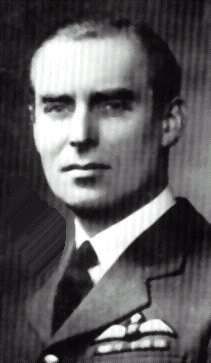
Why Didn't Britain Make The Nazi Connection?
By Mike Sparks
The Nazi Connection
by Commander F. W. Winterbotham RAF
1978; Dell Publishing, New York, NY


Commander Winterbotham: An Air Force Version of the Admiralty's Ian Fleming
RAF Commander Fred Winterbotham working for British Military intelligence, MI6 during the 1930s TALKED DIRECTLY WITH HITLER and other top-Nazis. He wrote about it in his 1978 book, The Nazi Connection. U.S. Army Lieutenant General James M. Gavin said: "A rare insight. Only Captain Winterbotham could have written this book".
During the mid-1970s, an important 30-year round of Official Secret Acts information was made public beginning with the "Ultra Secret" that we had broken the German Enigma machine codes and had won WW2 more by cheating--than force-of-arms. So if we were revising our WW2 history in light of new facts in the '70s, why has Winterbotham's The Nazi Connection been ignored and not yet factored into the generally-accepted WW2 historical explanation of events?
This is not SOMEONE'S OPINION.
This is eyewitness testimony of a man sent to spy on the Nazi leadership--who at the same time wanted to use him as a conduit back to the British government since the British Foreign Office refused to talk to the Nazis--even after they took over Germany. If Winterbotham is providing a "rare insight" as LTG Gavin is saying, why are we not using it?
The reasons will become obvious once you read his book.
If you read Winterbotham's facts, the standard WW2 explanation falls to pieces--and with it the danger that once the world realizes it was all a lie, we may never be conned into disastrous wars again.
Was Hitler Mind-Controlled?
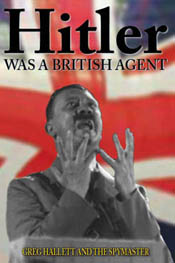
The first question you should probably ask, is what was Nazi dictator really like as discovered by Winterbotham? Go look on Page 68.
There were 2 Hitlers. The conscious Hitler was reasonable, even had a sense of humor. Call him Calm Hitler #1. However, once a key word or phrase like "Communism" was mentioned he turned into a raving angry man with strange powers of oratory to make the masses follow him. Call him Angry Hitler #2.
Winterbotham's eyewitness testimony establishes that New Zealand historian Greg Hallett's thesis is correct: Hitler was a British Agent (HWABA).
In 1912-13 Hitler was in England penniless--but as an illegitimate child of a Rothschild Illuminati, he was bred to be a war pied piper (there is a reason behind the fairy tale) for mass destruction by brain-washing at the infamous Tavistock Institute. Winterbotham either does not know this or can't reveal it. Winterbotham ponders if Hitler was schizophrenic; the tame and safe explanation is that he was born as a mad man; the dangerous and potentially only true explanation that accounts for all WW2 facts is that HE WAS MADE THAT WAY.
Was there Even Supposed to be a WW2?
You may rightly ask, WHY is Hitler, Rosenberg and Hess--the Nazi triumvirate--talking to a lowly RAF officer with the cover story of working for the Air Staff?
Hitler tells us on pages 70-71:
I managed to confine my sense of the ridiculous to a wide smile. Maybe Hitler wasn't used to people smiling broadly at him, but it seemed to work for he stood up, out shot a hand, not in the now familiar salute but to be shaken in the ordinary civilised way. He, too, was smiling and the first thing that struck me were his extraordinary protruding eyes. Many people have commented on their apparent hypnotic quality but to me they looked as if they stood out a bit too far from their sockets. Nevertheless, they were friendly. His complexion was far too pink and white because, I suppose, he was spending much of his time indoors in his office during the daylight hours. Later as he got out and about more he developed a tan. Neither of us spoke for a moment. I think I was too busy studying this man; he was certainly weighing me up. But then Rosenberg and Bill, who had remained slightly behind me, came up smiling and everybody started talking at once. It struck me again how nervous Rosenberg had been as to whether I should hit it off with his master, but I was to learn later that Hitler liked tall people and as I looked unmistakably Aryan and somewhat informal in grey flannels, I was evidently a success. It was immediately obvious to me that Hitler and Rosenberg were close friends although any cordiality was absent, whether by design or due to Rosenberg's evident reserve I could not judge. It was also evident that Bill was now right 'in the party' too. Formality was discarded and hair was definitely down; Hitler suggested that we move in the small round table some yards away. It was the only other piece of furniture in the room barring a few straight-backed chairs.
We sat down and Hitler started to talk. He seemed to have a soft spot for airmen; I suppose, having been an infantry corporal in the First World War, there was still some glamour attached to the Fliegers, those men who were, as he now described it, the last to experience the individual chivalry of war. Anyway, we talked about the First World War, and the fact that I had been shot down by Goering's bunch but was in no way bitter about my eighteen months as a prisoner of war pleased him. His voice was quietly normal, the harshness of Berlinese gently rounded by his Austrian origin. We talked as people who had shared a war talk in clubs and bars the world over. He was a perfectly ordinary, relaxed human being chatting about old times and being skillfully led on by Bill to talk of the present. "Yes," he too "believed in the strange comradeship of the air", and he hoped I would find the lads of his new Air Force as good as the old ones. I must meet me of them. Oh yes, the German Air Force was coming along nicely. The young men could now abandon their gliding exercises and get down to real flying training. He went on to tell me the latest figures of aircraft, which no doubt included those both in the flying training schools and in the squadrons. He was well briefed and proud of it and obviously enjoyed talking quite freely. I wondered why.
The Germans, under that ill-conceived document, the Versailles Treaty, were not allowed an Air Force, and up to the time that the Nazis took over they had to confine their open activities to gliding. As I had already found out, their General Staff had managed to train a few pilots secretly in Russia, but the completely open defiance of the Treaty was a new line and a pointer to what was to come. I wondered what His Majesty's Government would do about it and why Hitler had been so frank with me. The answers to these two questions, which appear from time to time these pages, show clearly the policy of the Nazis
Page 69
towards Britain and of the British Government towards its own people during those fateful years 1935-39. For the moment I hadn't worked the thing out, but I was glad to get confirmation from the number one Nazi of information I was receiving from friends in other countries about his intentions to start building a new German Air Force and also some idea of his future plans. It would, I hoped, help me to convince the Air Staff that they should take the matter seriously. Convincing the British Government was something else.
But now Hitler turned towards me, looked me straight in the eye and informed me that his Luftwaffe would have some five hundred operational aircraft by the end of 1934 or early 1935, and I felt I was going to find out why I had been asked to come to Berlin and what it was he wanted me to tell people in London when I got back. Speaking quietly and with natural conviction, he told me how he and his colleagues believed that unless something drastic was done some time in the not too distant future, some dozens of small black, white and brown states and countries would I" pursuing an entirely nationalistic policy, and everybody would be trying to order the world to their own particular advantage with the resultant chaos and risk of wars. "This," he said, "would be intolerable."
I realised that multiplicity of authority was anathema to a dictator and was therefore not surprised when Hitler continued: "There should be only three major powers in the world, the British Empire [as it then was], the Americas and the German Empire of the future." He stressed the fact that the British Empire had brought a wonderful civilisation to a large part of the world and he had no wish to disrupt it at all. As regards the future German Empire, this would include the rest of Europe and the lands to the East. In this way no single power would be able to dominate
Page 70
the others. England, with one or two exceptions, would continue her role in Africa and India, while Germany would take care of Russia and together we could decide the policy for China and the Far East. All questions of economic, material and cultural improvement could be much more easily and quickly resolved between three great powers. It was to be as simple as that.
I didn't think he had brought me all the way to Berlin just to hear his ideas on the future world; his next sentence was the really important one and was the basis of the theme which was to be pumped at me every time I went to Germany. "All we ask," Hitler said, "is that Britain should be content to look after her Empire and not interfere with Germany's plans of expansion." In other words, that we should keep our noses out of it. He went on to say that it would do us no good to get involved in another war, that the Germans themselves would look after the "crushing of Communism" in Russia; they didn't ask for our help at all. I remarked that this seemed a very big under-taking and perhaps he would be good enough to tell me more about it some other time. He smiled a bit wryly.
It was then that I made a remark which seemed to trigger him off. I said that I gathered that he heartily disliked the Communists. Up to this point, the four of us had been sitting quietly round the table listening and talking, but a sudden change now came over this little man. Colour suffused his face; the back of his neck, I could see, went red; his eyes started to bulge even further; he stood up and, as if he was an entirely different personality, he started to yell in his high-pitched staccato voice, which now echoed round the walls of the great room; he addressed not three people--but an imaginary three thousand. He ranted and raved against the Communists; it was the most extraordinary
Page 71
exhibition. So this was the sort of thing which was sup-posed to mesmerize the German people. To me it was absurd and rather funny, though this was before Charlie Chaplin had made such a shattering comedy of the whole business. I couldn't help smiling just as Hitler was delivering one of those twenty-words-all-joined-together pieces of Teutonic vituperation. He looked down at me and in a flash he stopped, his bulging eyes returned to their sockets, his face became a normal colour and once again he became calm. He caught my eye and actually smiled himself as he sat down. "That," he said, "is what I think of the Communists." I felt that somewhere carefully tucked away this little Austrian had got a sense of humour. Would that he had retained it. He must have been the only one in the outfit with the stability to laugh at himself.
I had already arranged with Bill that he should concentrate on each item about which Hitler would talk while I myself would try to assess the sincerity of the man, whether he was telling the truth or not, what the motives were behind what he had to say and generally what made him tick so loud and surely.
His strange outburst had, I think, startled Bill as much as it had myself, though Rosenberg, who must have been used to this sort of thing, just smiled blandly at his Fuehrer's astonishing performance. Nevertheless, I think that all that he had told us before this strange outburst on Communism had been genuinely what he believed in and hoped for. His language about the Communists was too vivid to be anything else but u reflection of his absolute obsession with the destruction of a force which otherwise threatened to destroy him.
I was still puzzled at the extraordinary change in Hitler's personality when he stood up and harangued us about Russia. I remember telling Bill when we got back to his flat and were discussing the interview that
Page 72
I felt the little man possessed some sort of dual personality that he could switch on at will. Was he a schizophrenic?
Our interview, supposed to be twenty minutes, had lasted nearly an hour. Now Hitler got up and as we stood talking he hold me that Anthony Eden and Sir John Simon, the then Foreign Secretary, had been over to see him. He had hoped for some support from Britain but as a result of getting none, he had left them in no doubt as to his decision to rebuild his Air Force and had told them that as far as he was concerned, the Versailles Treaty was dead. He added that he had been unable to get on with Eden and Simon and that he didn't like the too-obvious crease in Anthony Eden's trousers or his pointed shoes. To Hitler, "They merely added to the pomposity of the immaculate diplomat." It was then that, as if throwing in an afterthought, Hitler told us that he had informed Eden that he did not propose to build an Air Force larger than the combined air fleets of Britain and France for the defence of the Reich. Whether this assurance had given any comfort to the politicians I do not know, but from an airman's point of view it was a piece of nonsense. The French Air Force at the time consisted of a large number of ropey old kites which were unfit to take the air against any modern aircraft, while Britain's light bombers and fighters, primarily used to keep order in the Middle East, were also out of date. This declaration of intent was an obvious bit of Nazi duplicity. Numbers of aircraft may mean something to a politician, but from my experience it was quality that counted, and if Germany was now to start from scratch, in a very short time one hundred completely modern aircraft would be worth three hundred of our out-of-ones. This then was the crux of what I should have to find out. What would their Air Force consist
Page 73
of? What would be the proportion of bombers to fighters? The different types they would build would show the sort of war they intended to wage. It looked as if the Air Staff would have a job to educate the politicians on this subject since the build-up of a vast modern German Air Force would pose an unacceptable threat to ourselves and the French unless we did something about it quickly.
Hitler then went on to make another interesting remark. He said that, "in view of the lack of support from Britain", he had now had to sell half his birthright to the Army, this despite the fact that he was in effect the constitutional ruler of Germany. I did not immediately grasp the significance of what he said, but later it seemed to indicate that the Army was now to have a large say in the sequence of events. We took our leave, and as I shook hands with Hitler he remarked that I must come back and see everything which the Nazi Party was doing for the German nation. This, of course, was the invitation I had badly wanted and which I hoped would enable me to come and find out more us the years went by. But how many years had I got?
As we came downstairs there was again the sharp click of the heels of the black pawns on the while squares in the hall; Rosenberg was now swelling with importance since the interview had gone beyond his wildest dreams and there was little doubt that he him self had been deeply impressed by the candid conversation of his Fuehrer. He dropped us off at Bill's flat where we hurriedly sat down with pencil and paper to remember every word that had been spoken and to ail. I our own impressions on this extraordinary interview.
The first thing that had struck both of us was tin utter frankness of Hitler's long talk. He had tall... I rapidly, never searching for words, and was obviously saying what he meant to say and what he meant in to do
Page 74
as he outlined to us the programme for his Thousand-Year Reich. Here was the dictator of Germany telling me what he was going to do in the not far distant future. I kept asking myself why? He had evidently been told by Rosenberg of my connection at the Foreign Office and my job in the Air Staff. Did he think, I wondered, that the British Air Staff was as powerful politically as Goering was in Germany? Bill agreed that there might be something in this, but he pointed out that this was only one, reason. The main reason must be that the Nazi plans necessitated a neutral Britain. A neutral America was much more within their grasp, with its large German population and an already established Nazi Bund in America; but they needed to turn British opinion in their favour and they had not had the same opportunity as in America. It was Rosenberg's belief that he might be able to build up such a connection in Britain by using people like myself. "That", said Bill, "is why you have been invited to Germany", and the more I could find ways of convincing the Germans I hat I was passing on their message, the closer Bill would be able to get to Hitler.
However, to get down to the interview in more detail a main point which had struck us was the complete denunciation by Hitler of the Versailles Treaty; It was, he said, "dead". Then he had included the rest of Europe, barring Britain, in his sphere of influence, as he called it, which we judged to mean that he would probably try to have a quick war against France and that the invasion of Russia was already planned. The next major point was his intention to build up a vast Air Force, and if all the old British and French aircraft included in the deal, it looked as if Hitler had in mind a first-Iine Air Force of some two thousand mod-aircraft. If this was to be an offensive weapon, as it obviously must be if he carried out his plans, then
Page 75
presumably at least a third would have to be bombers of one sort or another. Both Bill and I thought that they had probably already decided on such a figure and had then put across the idea of a defensive Air Force equal to the British and French together in order to sweeten the pill for the politicians.
It was extraordinary how quiet the visit of Eden and Simon to Hitler had been kept in England, but it fitted in with the British attitude of ignoring the Nazis which was to be only too evident during the next few years. Hitler's point about selling half his birthright to the Army was interesting but we couldn't make out exactly what had happened. No doubt he had been having trouble with the Army. What had he given them in exchange for their loyalty? Had he agreed to a war of revenge against France before they would tackle Russia? Had he given them the right to decide the timing for the offensives? Obviously he must have given them the right to build the Army on their own lines. But that he didn't altogether trust them was evident from the way he was building up his own private army, the SS black-uniformed guards. Were they also a warning to the Army to keep in step or else?
Between us Bill and I drew up a report on the whole-interview. Looking back, never before or since have I spent such an important hour. Here was our horoscope being laid bare before us by the man who was able to make it all come true, if he could keep a neutral Britain ... if ... if. Here too was the key to my job, UK-quid pro quo for the way in which I could get them to let me see how they were rearming in the air. My Chief had told me before I left London that Sir Robert Vansittart had his own Nazi connections. Later he and his wife went to Germany to visit Hitler. Other British politicians also had German contacts. A member of Parliament, I knew, was a friend of Baron Werner von Fritsch, the Chief of Staff of the German Army. Von Fritsch was against war, for he believed that a powerful Germany with a very powerful Army could achieve all she needed without fighting in Europe. No doubt he kept my parliamentary friend informed about the build-up of the German Army. But as far I knew, I was the only Englishman with high-powered Nazi contacts who could verify what I was told. Neither Hitler nor Rosenberg knew this but I was in a much stronger position than anyone else, for I had now been given the bare framework of the new Luftwaffe and as soon as I re-turned to London I would be able to start work. Through my Intelligence contacts in Holland, Warsaw and Prague, I hoped to be able to get details of flying schools, training programmes, aerodromes and aeroplane factories, for data about these would show how quickly their Air Force was building up.
I was to meet Hitler several times and see him on innumerable occasions before the end of 1938, but only once again did I see a faint glimmer of humour on his face. It was when he was the undisputed Fuehrer of the rearmed Reich. Ribbentrop, who disliked both Rosenberg and de Ropp--the dislike was mutual--was back in as Foreign Secretary after his disastrous term ambassador in London. The old informality was "out" and Bill and I had been invited by Ribbentrop to a very official reception. It was just before the 1938 Nuremberg Rally. Berlin was full of foreign princes politicians who, even if they did not intend to jump on the Nazi band wagon, were preparing to play it both ways. The American diplomats and press were given the soft treatment and there were the usual hangers-on, including starry-eyed Unity Mitford.
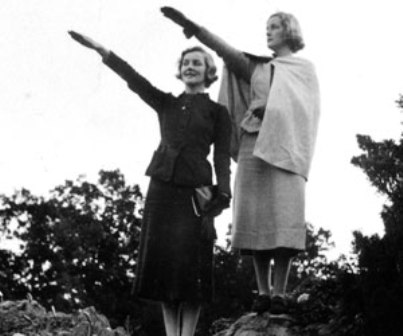
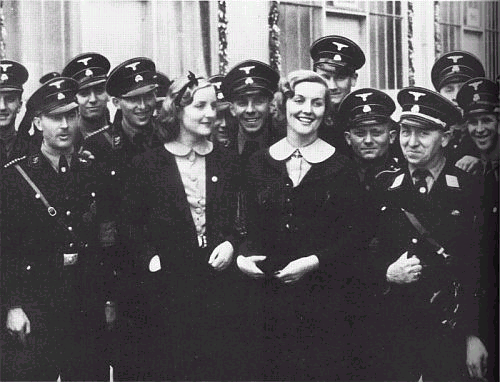
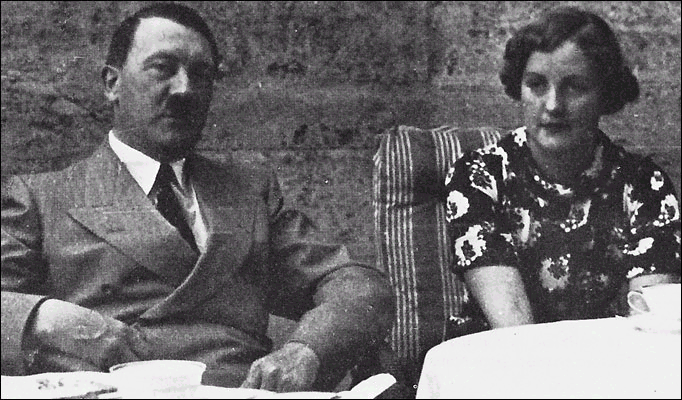
Now all the guests were formed into a great circle ready to receive the imperial handshake. I must say Hitler did it very well. There was none of
Page 77
the strutting, heel-clicking, bending-in-the-middle non-sense so beloved by the military. He came quietly along, a rather cheesy smile beneath the absurd little moustache. Bill and I were standing together, and as he shook hands the fixed smile broadened into a grin and for a fleeting moment the sparkle of fun came into his eyes as he murmured: "See how far I've come now."
Ribbentrop had not heard what was said, nor had he been meant to; this he obviously considered an insult. He glared at both of us. We had no doubt been invited to see Ribbentrop in all his glory to remind us that In-was now in charge of foreign affairs to the discredit of Rosenberg. Bill began to chuckle and I thought it was time to make ourselves scarce. So full of intrigue was the whole atmosphere at that time, you could not help seeing and hearing little groups of people looking you over and discussing who you could be.
Rosenberg had not been present; in fact, Ribbentropp had allowed nobody to spoil his triumphant presentation of his master and himself. But we found Rosen berg having a beer at his favourite cafe not far from Bill's flat. He even raised a smile when we told him about the "twitching wine waiter", as Ribbentrop was dispassionately called--he had a twitch of the eye which was uncontrollable and had been a wine merchant in civil life. Jealousy between Ribbentrop' BM Rosenberg had been evident as far back as 1933 when Ribbentrop first started to push his way into Rosenberg's amateurish efforts at foreign relations. It was but one more example of the in-fighting and duplication of responsibilities which were so marked in high Nazi circles.
During the time in which I observed Hitler, I saw how each year took toll of his health and sapped his joy in life: his features grew sallow and puffy and his
Page 78
expression increasingly troubled. I always found it impossible to assess his character, for his two personalities, a quiet, interesting talker and a staccato-voiced rabble-rousing tub-thumper, could seemingly be switched on and off at will. Not even his small sense of humour could account for his absurd quiff and moustache. How did it come about that this little Austrian corporal could achieve the authority and stature to lead a nation and finally the madness to alter the history of the world?
Rosenberg told me that when the movement started in Munich, Hitler was the 'talker' of this strange band of rebels. At first they had little clear idea of what they wanted to do except change the existing order. One got the impression that if there had been a Hyde Park corner in Germany, Hitler would have been there on his soap-box. One can visualize the rather indecisive authorities of the day saying, "That little troublemaker again." I gathered that it was only after this band of rebels had worked for some months on the ideas of Hess and Rosenberg that the basis of the new ideology began to emerge. "The Blueprint for Change", as Rosenberg called it, began to get around. Even the rebels were surprised at the number of supporters. As I have said, the climate was ripe; Germany wanted a new hero.
In the early days, according to Rosenberg, Hitler had to some extent on his close friends, Hess and Rosenberg. His ability to hold an audience was one of principal assets to this small group. Rosenberg described it as hypnotic; it may have been, though it did hypnotize me. But I have seen a crowd of many thousands whipped up to a state bordering on mass hysteria by this extraordinary man.
Adversity is always supposed to bring out the best in genius. There is little doubt that Hitler's imprisonment
Page 79
by the German Government gave this small band of political rebels time to sort out then: ideas and clarify them in book form-Hitler's Mein Kampf and Rosenberg's The Myth of the Twentieth Century.
There was some speculation aboard at first as to whether Hitler was just a puppet of his Party. Personally, I don't think this was ever the case. Certainly he was probably their spokesman at the beginning owing to his gift of the gab, but there is no doubt in my own mind that he became their leader as of right.
Gradually he found stronger men to support him, more used to action than dreaming up new philosophies; with them he grew in power and authority, if not in wisdom. Alas, the stronger men who had jumped on the band wagon began to pursue their own pet hates and theories. Streicher and Himmler got busy with the Jews; Hess got cracking on the trade unions, which he dissolved, though maybe this saved post-war Germany from some of the crippling effects of antiquated prejudices in this field. Rosenberg was given a free hand to go ahead with his plans for an Aryan Pagan Europe; Goering built himself an Air Force; von Schiraelt trained the youth of Germany to be fit to fight and lit be fertile; but Hitler was certainly in full command.
Alas, with power came not so much corruption as megalomania. How very few mortals can handle power. Generations of authority coupled with responsibility often bring justice and compassion, but this was hardly likely to happen to Hitler and his henchmen. Eventually the gods had their way. To anyone listening to Hitler during those final days in his bunker in Berlin ordering his long-since-disintegrated armies to new positions of defence on the Eastern front, his madness and destruction appeared complete; and yet if one sets aside for a moment all the more bestial activities of the Nazis, Hitler was the sole outspoken challenger.
Page 81
at that time of the Communists. Somehow he foresaw the troublemaking, the intrigue, the subversion, the mistrust and the misery that Communism would bring throughout the world, while apparently unaware that he himself was setting out on an equally disastrous course.
Hitler wants Britain to remain NEUTRAL--like the United States and not fight him as he goes EAST to fight the Russian Communists.
Read that again carefully.
HITLER DOES NOT WANT TO FIGHT ENGLAND.
This is EXACTLY what you would expect from someone who is secretly a BRITISH AGENT. Calm Hitler #1 says America, England and Germany should leave each other alone and wants Winterbotham to relay this message to the British government so it stays neutral like Spain and Switzerland. Key German generals like Goering and Fritsch also believe war is unnecessary for Germany to obtain its goals of more "living space"; by instead saber-rattling with a powerful military nearby countries so they can be annexed without bloodshed. The annexation of Austria, Czechoslovakia proves this. Then, when the German military is ready in 1941, it can lash out to the east and take-down Stalin's Communist Russia once-and-for-all and really get some "lebensraum".
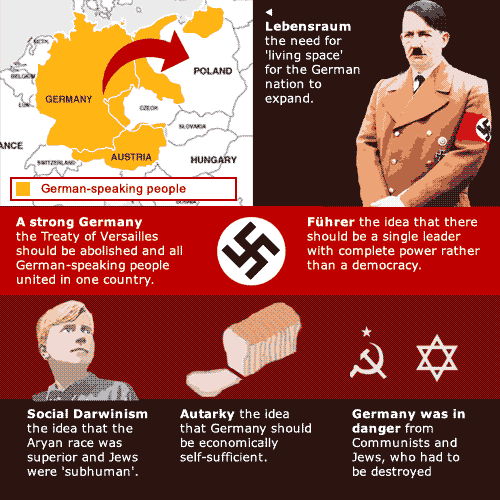
If England had remained neutral, there would not have been a WORLD War 2, at least not before Angry Hitler #2 miss-leads Nazi Germany vs. the Stalin Communist Russian duel to a conclusion. It would have been likely called the Germano-Russian War 1941-1943 etc.. Hitler was bred by the Rothschild Illuminati to destroy both Germany and Russia for war profits and to keep Great Britain on top. Hitler's anti-Semitism also appears to facilitate the Rothschild goal of forcing Jews to either die in death camps--or immigrate to Palestine to start the nation-state of Israel.
At the end of his book, Winterbotham makes this same conclusion, if Britain and Germany had come to some kind of agreement, Hitler could have run over Poland to reach Russia and the two evil systems could then have destroyed each other--leaving the west alone.
Unbeknownst to Winterbotham, its clear THIS WAS THE ROTHSCHILD PLAN ALL ALONG. The Rothschild Illuminati created the Soviet Communists then helped create (notice my words carefully) the Nazis to destroy them. He states that Britain didn't do anything to defend Poland anyway--and this is a KEY POINT. When Hitler was telling Winterbotham he wanted to only head EAST to destroy Communism THERE WAS NO DEFENSE PACT BETWEEN ENGLAND AND POLAND. The door was open.
So who closed it--and why?
So Why Didn't England Take Hitler's Military Threat Seriously?
The main thrust (pardon the aviation pun) of Winterbotham's book before meeting the Nazi leaders is the oft-cited situation that Germany was rearming itself with technologically superior weapons that would mean defeat in war--a situation he himself experience in WW1 when he was shot down by their superior planes and tactics. Winterbotham beginning in 1935 informs French military intelligence the exact details of how blitzkrieg works--to include the conclusion that it would go around their Maginot Line. Yet after 5 years of specific warnings, when the German panzers pour through the Ardennes forests there were no mobile, camouflaged anti-tank gun teams backed by tank reaction forces waiting for them. The war with France was indeed quick. What good is gathering military intelligence if you are not going to use it? Winterbotham proposes that if the West had stiffened its defenses just enough Hitler wouldn't have been able to give his generals their revenge on the French for WW1 in their tight time-table to attack Russia after the winter thaw but be able to finish them off before winter returned. This hardening in the form of a dual-use Anti-Aircraft/Anti-Tank weapon like the German 88mm could have been achieved without Germany changing its preparations--that did not include invading Britain because they expected the latter to remain neutral.
combatreform.org/thegermansarecomingthegermansarecoming.htm
What Winterbotham perhaps doesn't know is that THE BRITISH GOVERNMENT SECRETLY CONTROLS HITLER THROUGH MIND-CONTROL. They do not have to improve their military forces; he isn't going to attack them. Thus, the majority of the book is Winterbotham trying to wake the British government up to the German military threat--but getting nowhere.
So the question is, why didn't Britain get some nation-state "life insurance" and sign a non-aggression pact with Hitler--like he did with Stalin's Russia AFTER England sided with Poland--at least to make sure his first move in war was EAST--not west. Why rely on just mind control means? He is not their puppet 24/7/365--only when signaled. Tangling with the huge land mass and populace of Russia would bog the Nazis down for years and they might not even succeed; a stalemate might have developed with Germany trying to hold a huge chunk of Russia. This is of course, assuming America doesn't start providing war materials and weapons to keep Stalin in the fight. Which wouldn't make sense since Americans are violently anti-Communist.
Instead, Britain signs a defense pact with Poland guaranteeing that as soon as Hitler heads east to invade Communist Russia Britain would be at war with them. Did naive liberals like Neville Chamberlain actually think this would stop Hitler or that Britain would or even could come to Poland's aid? Didn't he read Winterbotham's detailed reports showing Hitler from 1934 on was gearing up to ATTACK EAST? By signing the absurd Polish defense pact, Hitler was neither stopped and Britain was placed at war with German in an unready position in 1939. If the Polish defense agreement was not signed, there is a chance that Hitler might have continued on eastward and broken their non-aggression pact with Russia--without invading Holland, Belgium, France--and started fighting a bully bigger than themselves. All the Polish defense pact did was guarantee that Hitler would invade Holland, Belgium and France as early as 1940. The greatest military thinker of the 20th Century, Captain B.H. Liddell-Hart agrees in his final book, History of the Second World War, pages 3-15:
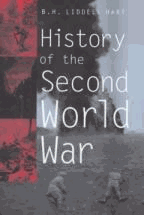
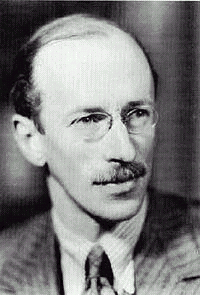
CHAPTER 1: THE WAR WAS PRECIPITATED
April 1, 1939, the world's Press carried the news that Mr. Neville Chamberlain's Cabinet, reversing its policy of appeasement and detachment, pledged Britain to defend Poland against any threat from Germany, with the aim of ensuring peace in Europe.
On September 1, however, Hitler marched across the Polish frontier. Days later, after vainly demanding his withdrawal, Britain and France entered the fight. Another European War had started-and it developed into the Second World War.
The Western Allies entered that war with a two-fold object. The immediate purpose was to fulfil their promise to preserve the independence of Poland. The ultimate purpose was to remove a potential menace to them-and thus ensure their own security. In the outcome, they failed in both purposes. Not only did they fail to prevent Poland from being overcome in the first place, and partitioned between Germany and Russia, but after 6 years of war which ended in apparent victory they were forced to acquiesce in Russia's domination of Poland-abandoning their pledges to the Poles who had fought on their side.
At same time all the effort that was put into the destruction of Hitlerite Germany resulted in a Europe so devastated and weakened in the process that its power of resistance was much reduced in the face of a fresh and greater menace--and Britain, in common with her European neighbours, had become a poor dependant of the United States.
These are the hard facts underlying the victory that was so hopefully pursued and so painfully achieved--after the colossal weight of both Russia and America had been drawn into the scales against Germany. The outcome dispelled the persistent popular illusion that "victory" spelt peace. It confirmed the warning of past experience that victory is a "mirage in the desert"--the desert that a long war creates, when waged with modern weapons and unlimited methods.
It is worthwhile to take stock of the consequences of the war before
Page 3
dealing with its causation. A realization of what the war brought may clear the way for a more realistic examination of how the war was produced. It sufficed for the purposes of the Nuremberg Trials to assume that the out-break of war, and all its extensions, were purely due to Hitler's aggression. But that is too simple and shallow an explanation.
The last thing that Hitler wanted to produce was another great war. His people, and particularly his generals, were profoundly fearful of any such risk-the experiences of World War I had scarred their minds. To emphasize the basic facts is not to whitewash Hitler's inherent aggressiveness, nor that of many Germans who eagerly followed his lead. But Hitler, though utterly unscrupulous, was for long cautious in pursuing his aims. The military chiefs were still more cautious and anxious about any step that might provoke a general conflict.
A large part of the German archives were captured after the war, and have thus been available for examination. They reveal an extraordinary degree of trepidation and deep-seated distrust of Germany's capacity to wage a great war. When, in 1936, Hitler moved to re-occupy the demilitarized zone of the Rhineland, his generals were alarmed at his decision and the reactions it might provoke from the French. As a result of their protests only a few token units were sent in at first, as "straws in the wind". When he wished to send troops to help Franco in the Spanish Civil War they made fresh protests about the risks involved, and he agreed to restrict his aid. But he disregarded their apprehensions about the march into Austria, in March 1938.
When, shortly afterwards, Hitler disclosed his intention of putting the screw on Czecho-Slovakia for the return of the Sudetenland, the Chief of the General Staff, General Beck, drafted a memorandum in which he argued that Hitler's aggressively expansionist programme was bound to produce a world-wide catastrophe and Germany's ruin. This was read out at a conference of the leading generals, and, with their general approval, sent to Hitler. As Hitler showed no sign of changing his policy, the Chief of the General Staff resigned from office. Hitler assured the other generals that France and Britain would not fight for Czecho-Slovakia, but they were so far from being reassured that they plotted a military revolt, to avert the risk of war by arresting Hitler and the other Nazi leaders.
The bottom was knocked out of their counter-plan, however, when Chamberlain acceded to Hitler's crippling demands upon Czecho-Slovakia, and in concert with the French agreed to stand aside while that unhappy country was stripped of both territory and defences.
For Chamberlain, the Munich Agreement spelt "peace for our time". For
Page 6
Hitler, it spelt a further and greater triumph not only over his foreign opponents--but also over his generals. After their warnings had been so repeatedly refuted by his unchallenged and bloodless successes, they naturally lost confidence, and influence. Naturally, too, Hitler himself became overweeningly confident of a continued run of easy success. Even when he came to see that further ventures might entail a war, he felt that it would be only a small one, and a short one. His moments of doubt were drowned by the cumulative effect of intoxicating success.
If he had really contemplated a general war, involving Britain, he would have put every possible effort into building a Navy capable of challenging Britain's command of the sea. But, in fact, he did not even build up his Navy to the limited scale visualized in the Anglo-German Naval Treaty of 1935. He constantly assured his admirals that they could discount any risk of war with Britain. After Munich he told them that they need not anticipate a conflict with Britain within the next six years at least. Even in the summer of 1939, and as late as August 22, he repeated such assurances-if with waning conviction.
How, then, did it come about that he became involved in the major war that he had been so anxious to avoid? The answer is to be found not merely, nor most, in Hitler's aggressiveness, but in the encouragement he had long received from the complaisant attitude of the Western Powers coupled with their sudden turn-about in the spring of 1939. That reversal was so abrupt and unexpected as to make war inevitable.
If you allow anyone to stoke up a boiler until the steam-pressure rises beyond danger-point, the real responsibility for any resultant explosion will lie with you. That truth of physical science applies equally to political science-especially to the conduct of international affairs.
Ever since Hitler's entry into power, in 1933, the British and French Governments had conceded to this dangerous autocrat immeasurably more than they had been willing to concede to Germany's previous democratic Governments. At every turn they showed a disposition to avoid trouble and shelve awkward problems-to preserve their present comfort at the expense of the future.
Hitler, on the other hand, was thinking out his problems all too logically. The course of his policy came to be guided by the ideas formulated in a "testament" which he expounded in November 1937-a version of which has been preserved in the so-called "Hossbach Memorandum". It was based on the conviction of Germany's vital need for more lebensraum-living space-for her expanding population if there was to be any chance of maintaining their living standards. In his view, Germany could not hope to make
Page 7
herself self-sufficient, especially in food-supply. Nor by buying it abroad could she obtain what was needed, since that meant spending more foreign exchange than she could afford. The prospects of her obtaining an increased share in world trade and industry were too limited, because of other nations' tariff walls and her own financial stringency. Moreover, the method of indirect supply would make her dependent on foreign nations, and liable to starvation in case of war.
His conclusion was that Germany must obtain more "agriculturally useful space"-in the thinly populated areas of Eastern Europe. It would be vain to hope that this would be willingly conceded her. "The history of all times- Roman Empire, British Empire-has proved that every space expansion can be effected only by breaking resistance and taking risks.... Neither in former times nor today has space been found without an owner." The problem would have to be solved by 1945 at the latest--"after this we can only expect a change for the worse". Possible outlets would be blocked while a food crisis would be imminent.
While these ideas went much farther than Hitler's initial desire to recover the territory that had been taken from Germany after World War I, it is not true that Western statesmen were as unaware of them as they later pretended. In 1937-8 many of them were frankly realistic in private discussion, though not on public platforms, and many arguments were set forth in British governing circles for allowing Germany to expand eastwards, and thus divert danger from the West. They showed much sympathy with Hitler's desire for lebensraum-and let him know it. But they shirked thinking out the problem of how the owners could be induced to yield it--except to threat of superior force.
The German documents reveal that Hitler derived special encouragement from Lord Halifax's visit in November 1937. Halifax was then Lord President of the Council, ranking second in the Cabinet to the Prime Minister. According to the documentary record of the interview, he gave Hitler to understand that Britain would allow him a free hand in Eastern Europe. Halifax may not have meant as much, but that was the impression he conveyed-and it proved of crucial importance.
Then, in February 1938, Mr. Anthony Eden was driven to resign as Foreign Minister after repeated disagreements with Chamberlain-who in response to one of his protests had told him to "go home and take an aspirin". Halifax was appointed to succeed him at the Foreign Office. A few days later, the British Ambassador in Berlin, Sir Neville Henderson, called on Hitler for a confidential talk, in continuation of Halifax's November conversation, and conveyed that the British Government was much in sympathy
Page 8
with Hitler's desire for "changes in Europe" to Germany's benefit-"the present British Government had a keen sense of reality".
As the documents show, these events precipitated Hitler's action. He thought that the lights had changed to green, allowing him to proceed east-ward. It was a very natural conclusion.
Hitler was further encouraged by the accommodating way that the British and French Governments accepted his march into Austria and incorporation of that country in the German Reich. (The only hitch in that easy coup was the way many of his tanks broke down on the road to Vienna.) Still more encouragement came when he heard that Chamberlain and Halifax had rejected Russian proposals, after that coup, to confer on a collective insurance plan against the German advance.
Here it should be added that when the threat to the Czechs came to a head in September 1938, the Russian Government again made known, publicly and privately, its willingness to combine with France and Britain in measures to defend Czecho-Slovakia. That offer was ignored. Moreover, Russia was ostentatiously excluded from the Munich conference at which Czecho-slovakia's fate was settled. This "cold-shouldering" had fatal consequences the following year.
After the way that the British Government had appeared to acquiesce in his eastward move, Hitler was unpleasantly surprised by their strong reaction, and the partial mobilisation, which developed when he "put the heat" on Czecho-Slovakia in September. But when Chamberlain yielded to his demands, and actively helped him to impose his terms on Czecho-slovakia, he felt that the momentary threat of resistance had been in the nature of a face-saving operation-to meet the objections of the large body of British opinion, headed by Mr. Winston Churchill, which opposed the governmental policy of conciliation and concession. He was no less encouraged by the passivity of the French. As they had so readily abandoned their Czech ally, which had possessed the most efficient Army of all the smaller Powers, it seemed unlikely that they would go to war in defence of any remnant of their former chain of allies in East and Central Europe.
Thus Hitler felt that he could safely complete the elimination of Czecho-slovakia at an early moment, and then expand his eastward advance.
At first, he did not think of moving against Poland-even though she possessed the largest stretch of territory carved out of Germany after World War I. Poland, like Hungary, had been helpful to him in threatening Czecho-Slovakia's rear, and thus inducing her to surrender to his demands-Poland, incidentally, had exploited the chance to seize a slice of Czech territory. Hitler was inclined to accept Poland as a junior partner for
Page 9
the time being, on condition that she handed back the German port of Danzig and granted Germany a free route to East Prussia through the Polish "Corridor". On Hitler's part, it was a remarkably moderate demand in the circumstances. But in successive discussions that winter, Hitler found that the Poles were obstinately disinclined to make any such concession, and also had an inflated idea of their own strength. Even so, he continued to hope that they would come round after further negotiation. As late as March 25 he told his Army Commander-in-Chief that he "did not wish to solve the Danzig problem by the use force". But a change of mind was produced by an unexpected British step that followed on a fresh step on his part in a different direction.
In the early months of 1939, the heads of the British Government were feeling happier than they had for a long time past. They lulled themselves into the belief that their accelerated rearmament measures, America's re-armament programme and Germany's economic difficulties were diminishing the danger of the situation. On March 10, Chamberlain privately expressed the view that the prospects of peace were better than ever, and spoke of his hopes that a new disarmament conference would be arranged before the end of the year. Next day, Sir Samuel Hoare--Eden's predecessor as Foreign Secretary and now Home Secretary-hopefully suggested in a speech that the world was entering "a Golden Age". Ministers assured friends and critics that Germany's economic plight made her incapable of going to war, and that she was bound to comply with the British Government's conditions in return for the help that it was offering her in the form of a commercial treaty. Two ministers, Mr. Oliver Stanley and Mr. Robert Hudson, were going to Berlin to arrange it.
That same week, Punch came out with a cartoon which showed "John Bull" awaking with relief from a nightmare, while the recent "war scare" was flying out of the window. Never was there such a spell of absurdly optimistic illusions as during the week leading up to the "Ides of March", 1939.
Meantime, the Nazis had been fostering separatist movements in Czecho-slovakia, to produce its breakdown from within. On March 12, the Slovaks declared their independence, after their leader, Father Tiso, had visited Hitler in Berlin. More blindly, Poland's Foreign Minister, Colonel Beck, publicly expressed his full sympathy with the Slovaks. On the fifth, German troops marched into Prague, after the Czech President had yielded to Hitler's demand to establish a "Protectorate" over Bohemia and to occupy the country accordingly.
The previous autumn, when the Munich agreement was made, the British Government had pledged itself to guarantee Czecho-Slovakia against
Page 10
aggression. But Chamberlain told the House of Commons that he considered that Slovakia's break-away had annulled the guarantee, and that he did not feel bound by this obligation. While expressing regret at what had happened, he conveyed to the House that he saw no reason why it should "deflect" British policy.
Within a few days, however, Chamberlain made a complete "about-turn"-so sudden and far-reaching that it amazed the world. He jumped to a decision to block any following move of Hitler's and on March 29 sent Poland an offer to support her against "any action which threatened Polish independence, and which the Polish Government accordingly considered it vital to resist". It is impossible to gauge what was the predominant influence on his impulse-the pressure of public indignation, or his own indignation, or his anger at having been fooled by Hitler, or his humiliation at having been made to look a fool in the eyes of his own people.
Most of those in Britain who had supported and applauded his previous appeasement policy underwent a similarly violent reaction-sharpened by the reproaches of the "other half" of the nation, which had distrusted the policy. The breach was cemented, and the nation reunited, by a general surge of exasperation.
The unqualified terms of the guarantee placed Britain's destiny in the hands of Poland's rulers, men of very dubious and unstable judgement. Moreover, the guarantee was impossible to fulfil except with Russia's help, yet no preliminary steps were taken to find out whether Russia would give, or Poland would accept, such aid.
The Cabinet, when asked to approve the guarantee, was not even shown the actual report of the Chiefs of Staff Committee-which would have made clear how impossible it was, in a practical sense, to give any effective protection to Poland.* It is doubtful, however, whether this would have made any difference in face of the prevailing mood.
When the guarantee was discussed in Parliament, it was welcomed on all
sides. Mr. Lloyd George's was a solitary voice when he warned the House that it was suicidal folly to undertake such a far-stretched commitment without first making sure of Russia's backing. The Polish Guarantee was the surest way to produce an early explosion, and a world war. It combined the maximum temptation with manifest provocation. It incited Hitler to demonstrate the futility of such a guarantee to a country out of reach from
___________________________________________________________
* I was told this soon afterwards by Mr. Hore-Belisha, then Secretary of State for War, and also by Lord Beaverbrook, who had heard about the matter from other members of the Government.
Page 11
the West, while making the stiff-necked Poles even less inclined to consider any concession to him, and at the same time making it impossible for him to draw back without "losing face".
Why did Poland's rulers accept such a fatal offer? Partly because they had an absurdly exaggerated idea of the power of their out-of-date forces-they boastfully talked of a "cavalry ride to Berlin". Partly because of personal factors: Colonel Beck, shortly afterwards, said that he made up his mind to accept the British offer between "two flicks of the ash" off the cigarette he was smoking. He went on to explain that at his meeting with Hitler in January he had found it hard to swallow Hitler's remark that Danzig "must" be handed back, and that when the British offer was communicated to him he saw it, and seized it, as a chance to give Hitler a slap-in-the-face. This impulse was only too typical of the ways in which the fate of peoples is often decided.
The only chance of avoiding war now lay in securing the support of Russia-the only power that could give Poland direct support and thus provide a deterrent to Hitler. But, despite the urgency of the situation, the British Government's steps were dilatory and half-hearted. Chamberlain had a strong dislike of Soviet Russia and Halifax an intense religious antipathy, while both underrated her strength as much as they overrated Poland's. If they now recognised the desirability of a defensive arrangement with Russia they wanted it on their own terms, and failed to realise that by their precipitate guarantee to Poland they had placed themselves in a position where they would have to sue for it on her terms-as was obvious to Stalin, if not to them.
But beyond their own hesitations were the objections of the Polish Government, and the other small powers in eastern Europe, to accepting military support from Russia-since these feared that reinforcement by her armies would be equivalent to invasion. So the pace of the Anglo-Russian negotiations became as slow as a funeral march.
Very different was Hitler's response to the new situation. Britain's violent reaction and redoubled armament measures shook him, but the effect was opposite to that intended. Feeling that the British were becoming opposed to German expansion eastward, and fearful of being blocked if he tarried, he drew the conclusion that he must accelerate his steps towards lebensraum. But how could he do it without bringing on a general war? His solution was coloured by his historically derived picture of the British. Regarding them as cool-headed and rational, with their emotions controlled by their head, he felt that they would not dream of entering a war on behalf of Poland unless they could obtain Russia's support. So, swallowing his hatred
Page 12
and fear of "Bolshevism", he bent his efforts and energies towards conciliating Russia and securing her abstention. It was a turn-about even more startling than Chamberlain's-and as fatal in its consequences.
Rider's courting approach to Russia was eased because Stalin was already looking on the West from a new slant. The Russians' natural resentment of the way they had been cold-shouldered by Chamberlain and Halifax in 1938 was increased when, after Hitler's march into Prague, their fresh proposal for a joint defensive alliance had a tepid reception, while the British Government rushed into an independent arrangement with Poland. Nothing could have been more certain to deepen doubt and heighten suspicion.
On May 3 a warning, unmistakable except to the blind, was conveyed in the news that Litvinov, Russia's Foreign Commissar, had been "released" from office. He had long been the chief advocate of co-operation with the Western Powers in resistance to Nazi Germany. To his post was appointed Molotov, who was reported to prefer dealing with dictators to dealing with liberal democracies.
Tentative moves towards a Soviet-Nazi entente began in April, but were conducted on both sides with extreme wariness-for mutual distrust was profound, and each side suspected that the other might be merely trying to hinder it reaching an agreement with the Western Powers. But the slow progress of the Anglo-Russian negotiations encouraged the Germans to exploit the opportunity, quicken their pace, and press their suit. Molotov remained non-committal, however, until the middle of August. Then a decisive change took place. It may have been prompted by the Germans' willingness, in contrast to British hesitations and reservations, to concede Stalin's exacting conditions, especially a free hand with the Baltic States. It may also have been connected with the obvious fact that Hitler could not afford to postpone action in Poland beyond early September, lest the weather might bog him down, so that the postponement of the Soviet-German agreement until late in August ensured that there would not be time for Hitler and the Western Powers to reach another "Munich agreement"- which might spell danger for Russia.
On August 23 Ribbentrop flew to Moscow, and the pact was signed. It was accompanied by a secret agreement under which Poland was to be partitioned between Germany and Russia.
This pact made war certain, and all the more so because of the lateness of the timing. Hitler could not draw back on the Polish issue without serious loss of face in Moscow. Moreover, his belief that the British Government would not venture on an obviously futile struggle to preserve Poland, and
Page 13
did not really wish to bring in Russia, had been freshly fostered by the way that Chamberlain had, in late July, started private negotiations with him through his trusted adviser, Sir Horace Wilson, for an Anglo-German pact.
But the Soviet-German Pact, coming so late, did not have the effect on the British that Hitler had reckoned. On the contrary, it aroused the "bull-dog" spirit-of blind determination, regardless of the consequences. In that state of feeling, Chamberlain could not stand aside without both loss-of-face and breach of promise.
Stalin had been only too well aware that the Western Powers had long been disposed to let Hitler expand eastward-in Russia's direction. It is probable that he saw the Soviet-German Pact as a convenient device by which he could divert Hitler's aggressive dynamism in the opposite direction. In other words, by this nimble side-step he would let his immediate and potential opponents crash into one another. At the least this should produce a diminution of the threat to Soviet Russia, and might well result in such common exhaustion on their part as to ensure Russia's post-war ascendancy.
The Pact meant the removal of Poland as a buffer between Germany and Russia-but the Russians had always felt that the Poles were more likely to serve as a spearhead for a German invasion of Russia than as a barricade against it. By collaborating in Hitler's conquest of Poland, and dividing it with him, they would not only be taking an easy way of regaining their pre-1914 property but be able to convert eastern Poland into a barrier space which, though narrower, would be held by their own forces. That seemed a more reliable buffer than an independent Poland. The Pact also paved the way for Russia's occupation of the Baltic States and Bessarabia, as a wider extension of the buffer.
In 1941, after Hitler had swept into Russia, Stalin's 1939 side-step looked a fatally short-sighted shift. It is likely that Stalin overestimated the Western nations' capacity for resisting, and thus exhausting, Germany's power. It is likely, too, that he also overestimated the initial resisting power of his own forces. Nevertheless, surveying the European situation in later years, it does not seem so certain as in 1941 that his side-step proved to Soviet Russia's disadvantage.
For the West, on the other hand, it brought immeasurable harm. The primary blame for that lies with those who were responsible for the successive policies of procrastination and precipitation-in face of a palpably explosive situation. Dealing with Britain's entry into the war-after describing how she allowed Germany to re-arm and then to swallow Austria and
Page 14
Czecho-Slovakia, while at the same time spurning Russia's proposals for joint action-Churchill says:
...when every one of these aids and advantages has been squandered and thrown away, Great Britain advances, leading France by the hand, to guarantee the integrity of Poland-of that very Poland which with hyena appetite had only six months before joined in the pillage and destruction of the Czechoslovak State. There was sense in fighting for Czechoslovakia in 1938, when the German Army could scarcely put half a dozen trained divisions on the Western Front, when the French with nearly sixty or seventy divisions could most certainly have rolled forward across the Rhine or into the Ruhr. But this had been judged unreasonable, rash, below the level of modern intellectual thought and morality. Yet now at last the two Western democracies declared themselves ready to stake their lives upon the territorial integrity of Poland. History, which, we are told, is mainly the record of the crimes, follies, and miseries of mankind, may be scoured and ransacked to find a parallel to this sudden and complete reversal of five or six years' policy of easy-going placatory appeasement, and its transformation almost over-night into a readiness to accept an obviously imminent war on far worse conditions and on the greatest scale....
Here was decision at last, taken at the worst possible moment and on the least satisfactory ground, which must surely lead to the slaughter of tens of millions of people.*
It is a striking verdict on Chamberlain's folly, written in hindsight. For Churchill himself had, in the heat of the moment, supported Chamberlain's pressing offer of Britain's guarantee to Poland. It is only too evident that in 1939 he, like most of Britain's leaders, acted on a hot-headed impulse-instead of with the cool-headed judgement that was once characteristic of British statesmanship.
___________________________________________________________
* Churchill: The Second World War, vol. I, pp. 311-12. Full bibliographical details of all books referred to in the text can be found on p. 715.
Page 15
If Hitler had to take France to appease the German Army regardless, the whole issue then hinges on TIMING; if attacking to the east was kept attractive maybe Holland, Belgium and France could have been spared until after 1943--or altogether--if Hitler bites off more than he could chew in Stalin's Russia. No offense to the Poles, but an empty gesture to defend them did not help them and actually prolonged the war by insuring Hitler attacked the West--when he should have met his Waterloo sooner in the East. Moreover, Poland was not innocent: they were in partnership with Germany and got a chunk of Czechoslovakia. Hitler in fact wanted them to JOIN the German Army in the attack on communist Russia. Instead, the overly confidant Poles didn't even let the German Army pass through to strike Russia and found themselves in the end dominated by the Soviets for the next 60 years. How many Poles does it take to screw a light bulb up?
Winterbotham reveals what probably happened in his reporting of Calm Hitler #1's remarks about "selling half his birthright" to the German Generals. Hitler's birthright was to make war with Communism in the East--not the West. Winterbotham suggests that Calm Hitler #1 was forced to attack WEST by the German Army to get revenge on the Allies, particularly France for their defeat in WW1. However, doing this would oblige Britain to declare war on Germany since it had a defense alliance with France.
I smell a rat, a Rockefeller Illuminati rat.
Nazi Germany even if its leader was secretly a Rothschild Illuminati mind-controlled British agent--was built by the Americans Rockefeller Illuminati with Wall Street funds given/lent to the National Democratic Socialist Workers Party and its big business corporation sponsors like I.G. Farben. While Hitler wanted Germany to commit national suicide attacking Communist Russia, the Rockefellers who controlled Nazi big business and the German Army demanded that Calm Hitler #1 put some hurt on their rivals the Rothschild Illuminati and smash the British Empire. Churchill and the Rothschild Illuminati were not prepared for this Rockefeller Illuminati doublecross of Hitler attacking them contradicting their master plan. The best they could do to avert disaster was signal Angry Hitler #2 and order his panzers to stop at Dunkirk so the British Expeditionary Force (BEF) could escape and fight another day. Because Hitler never intended to fight England, he fortunately did not have the aircraft to seal off air and water resupply of the island nation nor the amphibious means to invade as Winterbotham points out. The Rockefellers wanted their Russian oil wells back taken during the Communist revolution.
WW2: an Illuminati Double-Cross?
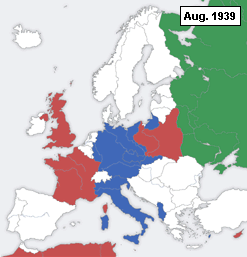
Therefore, the real story of WW2 is that it wasn't supposed to have occurred at all--it originally was to be only a regional war according to the Rothschild Illuminati plan to destroy Russia and German--while maintaining the British Empire and creating Israel. The Rothschild Illuminati got thwarted by the American Rockefeller Illuminati turning Hitler on their rivals and his Rothschild puppet masters. The result of WW2 was the British Empire was bankrupted, much of Germany and Russia ruined--with the American Rockefeller Illuminati in control of the world ever since. Israel was born as a consolation prize while surviving Nazis fled to South America and the United States to assist in the on-going fascist take-over there.
Its now easy to see why Neville Chamberlain was rewarded for his Polish defense guarantee double-cross with assassination by poison as Greg Hallett writes in HWABA. If the plan was well-known from the 1930s onward--thanks to the spy work of people like Winterbotham--to LET Hitler steer Germany eastward to its doom into Russia, then by all means stay out of the way! Since Britain couldn't project any military force to defend Poland, then what good is a paper promise? All that did was ruin the con job that had been placed in Hitler's mind that he had British backing and drive him to cut a deal with Stalin to dismember Poland and turn a blind eye to the latter's land grabs in Finland and the Baltic Republics. It would have cost Britain nothing to not made a paper promise it couldn't back and instead convince the Poles to let the Germans pass through the "corridor" and meet their demise fighting the Russians. In the actual event, Poland ineptly fighting for its independence scored no brownie points with Stalin, who marched through them to Berlin and the resultant Communist domination lasted for another 50+ years. Look at the case of the defiant Finns; the Soviets respected them for their defiance which included joining with the Germans in invading Russia in the Second Winter War. Had Poland joined Germany and attacked Russia they might have at least earned some respect from the Communists afterwards when the inevitable masses prevail.
ICEBREAKER: Stalin Wanted to Go West All Along...
 http://youtu.be/6Clv-c6QdBs
http://youtu.be/6Clv-c6QdBs
READ Icebreaker for FREE!
Victor Suvorov (former GRU military intelligence officer and tank captain Vladimir Rezin) in his revealing book, Icebreaker reveals that Stalin wanted Hitler's Nazi Germany to go WEST and "break the ice" for him to conquer the free world for his sick and evil communism.
This is Viktor Suvorov's book presentation at the United States Naval Academy on October 7, 2009.ihr.org/jhr/v18/v18n3p40_Michaels.html
In his recent book The Chief Culprit the best-selling author Viktor Suvorov probes newly released Soviet documents and reevaluates existing material to analyze Stalin's strategic design to conquer Europe and the reasons behind his controversial support for Nazi Germany.
He argues that Stalin was caught just days before launching his own assault into Central Europe. Thus, the Red Army's offensive posture rendered it uniquely vulnerable to German attack.
A former Soviet army intelligence officer (true name Vladimir Rezun), the author explains that Stalin's strategy leading up to World War II grew from Vladimir Lenin's belief that if World War I did not ignite the worldwide Communist revolution, then a second world war would be needed to achieve it. Stalin saw Nazi Germany as the power that would fight and weaken capitalist countries so that Soviet armies could then sweep across Europe. Suvorov reveals how Stalin conspired with German leaders to bypass the Versailles Treaty, which forbade German rearmament, and secretly trained German engineers and officers and provided bases and factories for war. He also calls attention to the 1939 nonaggression pact between the Soviet Union and Germany that allowed Hitler to proceed with his plans to invade Poland, fomenting war in Europe.
Suvorov debunks the theory that Stalin was duped by Hitler and that the Soviet Union was a victim of Nazi aggression. Instead, he makes the case that Stalin neither feared Hitler nor mistakenly trusted him. Suvorov maintains that after Germany occupied Poland, defeated France, and started to prepare for an invasion of Great Britain, Hitler's intelligence services detected the Soviet Union's preparations for a major war against Germany. This detection, he argues, led to Germany's preemptive war plan and the launch of an invasion of the USSR. Stalin emerges from the pages of this book as a genius consumed by the vision of a worldwide Communist revolution at any cost--a leader who wooed Hitler and Germany in his own effort to conquer the world. In contradicting traditional theories about Soviet planning, the book is certain to provoke debate among historians throughout the world.
About the Author
VIKTOR SUVOROV is the author of eighteen books that have been translated into more than twenty languages, including "Inside the Aquarium: The Making of a Top Soviet Spy" and "Icebreaker: Who Started the Second World War?" A Soviet army officer who served in military intelligence, he defected in 1978 to the United Kingdom, where he worked as an intelligence analyst and lecturer. He lives in England.
Since the event that caused this to happen was Chamberlain's absurd promise to defend Poland which deflected Hitler away from going east to attack Stalin, the question has to be asked:
Were there Soviet moles in MI5 that goaded Chamberlain into making the absurd promise to defend Poland?
Much has been made over the years about MI6 British military intelligence having Societ spies in the form of the Cambridge 5 lead by the asshole Kim Philby. However, it's MI6's job to argue for or against FOREIGN intelligence--NOT MI5's job. Why in the hell was MI5 sticking its nose into their rival's MI6's business when their job was (and still is) INTERNAL security matters? As you can see in the revelations below, MI5 trash-talked Chamberlain into promising to defend Poland and their insubordinate meddling caused NEAR DISASTER for the entire free world. Had Chamberlain listened to MI6 which knew what the hell it was doing, and let Hitler continue EAST until he smacked into Stalin's Communist Russia, the entire tragedy of WW2 could have been avoided since as Suvorov says, Stalin was in an offensive mode ready to invade Hitler's territories.
telegraph.co.uk/news/uknews/6263169/Hitler-called-Chamberlain-an-ahole.html
Hitler "called Chamberlain an a***hole"MI5 told Neville Chamberlain that Hitler thought he was an "a***hole" in order to try and persuade him to drop his policy of appeasement, a new book reveals. Neville Chamberlain; Hitler 'called Chamberlain an a***hole'
Adolf HItler's insulting references to Chamberlain are said to have had 'a considerable impression on the Prime Minister.' Photo: GETTY
By Duncan Gardham, Security Correspondent
7:13PM BST 05 Oct 2009
The "authorised" history of MI5, Defence of the Realm, details how their foreign intelligence counterparts, MI6, supported appeasement, but MI5 disagreed and began putting together a dossier from a number of sources.
The file claimed that Hitler was "convinced that Great Britain is 'decadent' and lacks the will power to defend the British Empire" and added: "If the information in the [report] which has proved generally reliable in the past, is to be believed, Germany is at the beginning of a 'Napoleonic era' and her rulers contemplate a great extension of German power."
At the suggestion of one officer they included samples of Hitler's insulting references to Chamberlain which was said to have had "a considerable impression on the Prime Minister."
Lord Halifax, the Foreign Secretary, underlined three times in red pencil Hitler's reported description of Chamberlain as an "arschloch" before handing it on to the Prime Minister.
Hitler was also said to have mocked Chamberlain's trademark umbrella, according to the report, which said he was "very fond of making jokes about the 'umbrella pacifism' of the once so imposing British world empire."
Professor Christopher Andrew, the author of the book, said the report, delivered in November 1938, was "unprecedented" because it represented the "first, albeit implicit, indictment of government foreign policy by a British intelligence agency."
Former British naval aviator, MI6 spy and journalist, William Stevenson warns us in Intrepid's Last Mission that an intelligence agency under enemy control can cause the heads-of-state to make disastrous decisions. Clearly, MI5 is the guilty party here. The question is--which enemy was controlling MI5 to con Chamberlain into promising to defend Poland? I am inclined to think it was the American Rockefellers but we cannot discount the possibility that Stalin had moles within MI5 up to the job. In the 1930s a lot of naive intellectual people bitter about the depression brought on by greedy capitalists (Rockefellers) were seduced by the concept of forced Communism. We know this is true from the Cambridge 5 spy ring in MI6. So why not have these same type of deluded folks in MI5? Certainly, the Rockefellers have and had enough money to bribe MI5 agents into conning Chamberlain to go WEST and smash their rivals, the Rothschild Illuminati.
Surprisingly, the genocidal monster Stalin says the same things. We know on occasion when the truth was in his favor, Stalin would indeed tell the truth, for example that Hitler did not commit suicide in the bunker in 1945 but escaped.
http://en.wikipedia.org/wiki/Joseph_Stalin
In 1948, Stalin personally edited and rewrote by hand sections of the cold war book Falsifiers of History.[255] Falsifiers was published in response to the documents made public in Nazi-Soviet Relations, 1939-1941: Documents from the Archives of The German Foreign Office,[256][257] which included the secret protocols of the Molotov-Ribbentrop Pact and other secret German-Soviet relations documents.[256][258] Falsifiers originally appeared as a series of articles in Pravda in February 1948,[257] and was subsequently published in numerous language and distributed worldwide.[259]The book did not attempt to directly counter or deal with the documents published in Nazi-Soviet Relations[260] and rather, focused upon Western culpability for the outbreak of war in 1939.[259] It argues that "Western powers" aided Nazi rearmament and aggression, including that American bankers and industrialists provided capital for the growth of German war industries, while deliberately encouraging Hitler to expand eastward.[256] It depicted the Soviet Union as striving to negotiate a collective security against Hitler, while being thwarted by double-dealing Anglo-French appeasers who, despite appearances, had no intention of a Soviet alliance and were secretly negotiating with Berlin.[259] It casts the Munich agreement, not just as Anglo-French short-sightedness or cowardice, but as a "secret" agreement that was a "a highly important phase in their policy aimed at goading the Hitlerite aggressors against the Soviet Union."[261] The book also included the claim that, during the Pact's operation, Stalin rejected Hitler's offer to share in a division of the world, without mentioning the Soviet offers to join the Axis.
SIDEBAR: Russian Air-Mech Ready to Pounce on Germany!
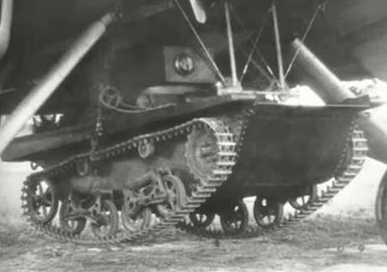
T37 Light Tank Under Russian TB-3 Bomber for Air Delivery
The author, an Air-Mech-Strike proponent has examined the works of the Russian Airborne pioneers like Marshal Tukhachevsky who was so popular and powerful that Stalin had him executed--after he had delivered a 3-dimensional (3D) maneuver force capable of spear-heading an invasion of the west through Hitler's Germany.
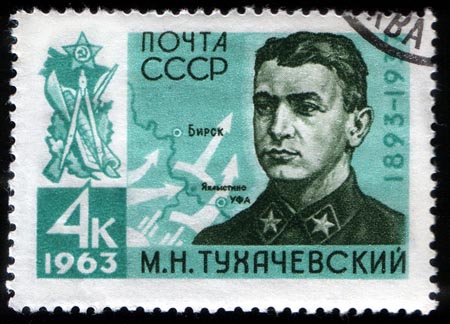
What's amazing is what the Russians were going to do with their light tanks to over-run western Europe if they had invaded first. We forget that Nazi Germany's success in both the west and early on in the east was done using LIGHT tanks capable of moving cross-country in infiltrating swarms preceding by German paratroops (fallschirmjaegers). The lack of German use of Paratroopers acting as 3D maneuver spearheads for their panzers was fatal as the fell just short of Moscow. In contrast, Russian paras and light tanks kept them from getting any closer than seeing Moscow's towers in the distance. It was that close.
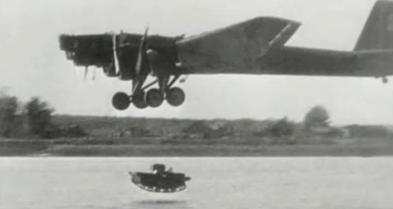
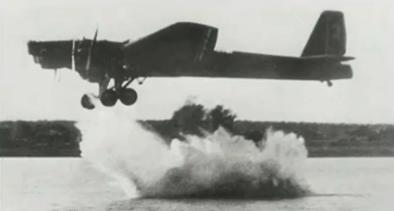
Hitler's loss of faith in his Airborne was a direct result of the ULTRA SECRET revealing where the Germans were paradropping and glider airlanding earlier on the island of Crete in 1941. Yet another example where if it were not for the ULTRA intercepts and code-breaking, we would have lost WW2 despite even Hitler's sabotaging.

What heavy tank cheerleaders do not understand is that AFTER Germany invaded Russia and failed to knock-out the center of government, Moscow to topple Stalin from power, their LIGHT tanks would be at a disadvantage in a DEFENSIVE struggle to hold-on to the territory they had in the face of heavier and heavier Russian tanks since they, too were on the defensive. Beginning with the T34 medium tank--the best medium tank of the war, the Russians had tank overmatch in all 3 categories--76mm gun firepower, sloped armor protection and wide track mobility. However, the German's light tanks without turrets--their STUGs saved the day for them and made up for their lightness by their low silhoettes. On the defensive, Germany squandered away its technical skills and mass-production means on bloated heavy tanks with turrets when they should have mass-produced light tanks without turrets but over-matching 88mm guns to stem the Soviet armored on slaught. Instead, the Russian's T34s and American M4 Sherman medium tanks swarmed around the heavier German tanks and killed the latter with shots to flanks and rears. Quantity indeed is a quality of its own--if you don't care how many people you throw away fighting from platform vs. platform undermatch. The poiny is that the Germans could have had both quantity and platform qualitative overmatch had they built only 88mm gun STUGs.
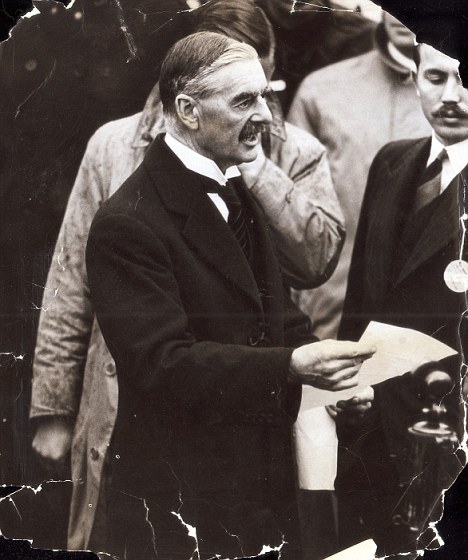
Moreover, Chamberlain's stupid posturing caused MILLIONS of people to die when Hitler turned WESTWARD and seized Holland, Belgium and France--when he should have been stalemated in the East fighting the humongous Russians.
The British should have kept their cool and stuck to the Rothschild script for Germany to slam into Russia as soon as possible. That it did not due to emotionalism as Liddell-Hart suggests or Illuminati double-cross as Hallett and I propose still does not diminish the fact that APPEASEMENT SAVED BRITAIN--and the West. Nothing short of Britain/France marching on Germany in the 1930s to remove Hitler's Nazis from power and the still weak German Army as Churchill described after-the-fact would have worked. Short of this, appeasing Hitler and telling him he could expand eastward bought us valuable time to rearm our militaries but most importantly make sure Hitler did not take military steps to defeat Britain. Appeasement meant Hitler prepared for LAND warfare headed to the East against Russia; tank armies backed by lots of short-range tactical planes operating from forward airstrips. Hitler did not build up a powerful Navy to seal-off the British Isles to starve them into submission or create amphibious means to cross the English channel to invade nor the long-range aircraft to create an air cordon. Hitler ignored SEA warfare for the most part in his war preparations in the 1930s. This is because Hitler did not want to nor thought he would have to fight Britain. Indeed, Hitler was a British Agent, and would have been a highly successful one had Chamberlain not forced Britain to declare war on Germany with his absurd Polish promise. The most important result of appeasement was it directed Hitler to ignore having to fight the British; and this margin of error, this lack of specific military preparedness was the slim sliver that saved the West from military defeat in WW2. Men like Winterbotham saved us by keeping Hitler focused away from war with Britain.
SIDEBAR: Operation SEA LION: The Invasion that Wasn't
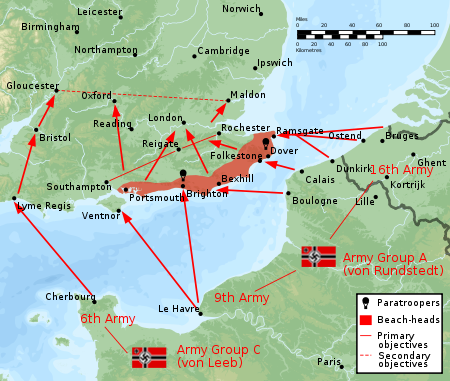
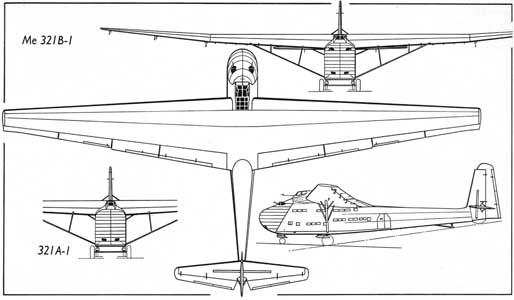
Liddell-Hart does a great job outlining SEA LION and noting the German Airborne would land without any tanks. Tanks would come in follow-on waves by barges. Even though the Germans acted the most on his advice, they were still not fully ready by WW2's beginning.
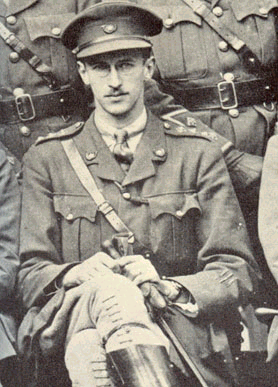
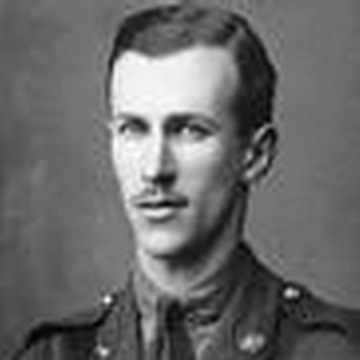
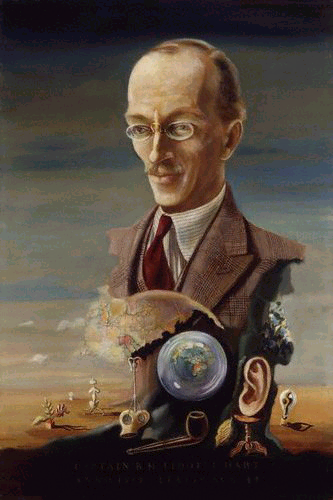
On Page 89 of his History of the Second World War he writes:
When France collapsed, the German Army was in no way prepared for such an undertaking as the invasion of England. The staff had not contemplated it, let alone studied it; the troops had been given no training for seaborne and landing operations; and nothing had been done to build landing-craft for the purpose. So all that could be attempted was a hurried effort to collect shipping, bring barges from Germany and the Netherlands to the Channel ports, and give the troops some practice in embarking and disembarking. It was only the temporary 'nakedness' of the British forces, after losing most of their arms and equipment in France, that offered such a hasty improvisation the possibility of success.The main part in the operation was given to Field-Marshal von Rundstedt and his Army Group A, which was to employ the 16th Army (General Busch) on the right and the 9th Army (General Strauss) on the left. Embarking in the various harbours between the estuaries of the Scheldt and the Seine, seaborne forces were to converge on the south-east coast of England between Folkestone and Brighton, while an airborne division was to capture the cliff-covered Dover-Folkestone area. Under this 'Sealion' plan, ten divisions would be landed in the first wave over a period of four days to establish a wide bridgehead. After about a week the main advance inland would begin, its first objective being to gain the high ground along an arc from the Thames estuary to Portsmouth. In the next stage, London was to be cut off from the west.
A subsidiary operation was to be mounted by the 6th Army (Field-Marshal von Reichenau) of Army Group B, with three divisions in the first wave, to sail from Cherbourg and land in Lyme Bay west of Portland Bill for a push northward to the Severn estuary.
The second wave of the invasion would be an exploiting mobile force composed of six armoured and three motorised divisions in three corps, and t his would be followed by a third wave of nine infantry divisions and a fourth wave of eight infantry divisions. Although there were no armoured divisions in the first wave, it was allotted approximately 650 tanks, all to be carried in the first of its two echelons (the leading echelon amounted to just over a third of its total strength of 250,000 troops). The cross-Channel conveyance of this two-piece first wave called for 155 transports, totaling some 700,000 tons, besides over 3,000 smaller craft-1,720 barges, 470 tugs, and 1,160 motorboats...

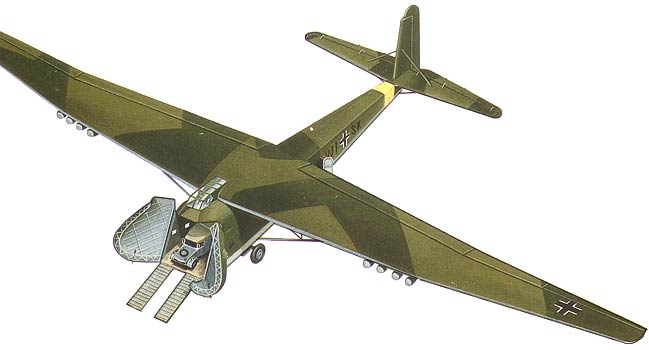
What is interesting is that the Germans belatedly began developing the Me-321 heavy transport glider which was capable of moving Czech 38T light tanks with 37mm guns and machine guns--exactly the combo of the British Hamilcar glider and Tetrarch/Locust 37mm/MMG light tanks the Allies used to defeat them later on in the war.

Technical performance data says a Panzer Mk.IV tank with 75mm gun could be transported by the Me-321. The Germans realized early on, that the thrust to TAKE-OFF was far greater than the thrust to maintain flight and used ROCKETS (we call this JATO) to take-off and then tow the Me-321 with the minimalist required tow aircraft. The problem was if a rocket failed to ignite as it did during one test, the whole collection could crash into a flaming fireball.
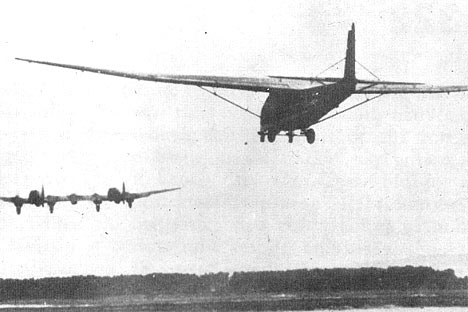
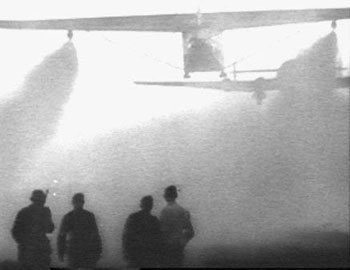

However, the Germans went from offensive to defensive mode after 1943 so their developmental Air-Mech-Strike work was not used to decisive effect but they did put engines on the Me-321 making it the powered Me-323 Gigant transport.
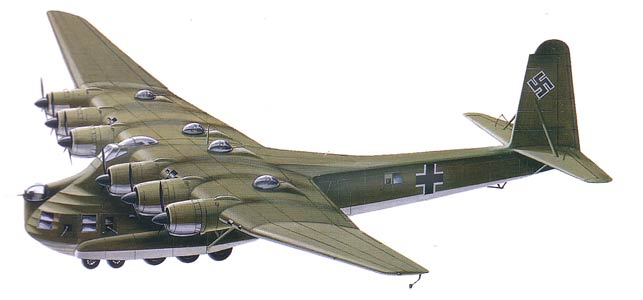
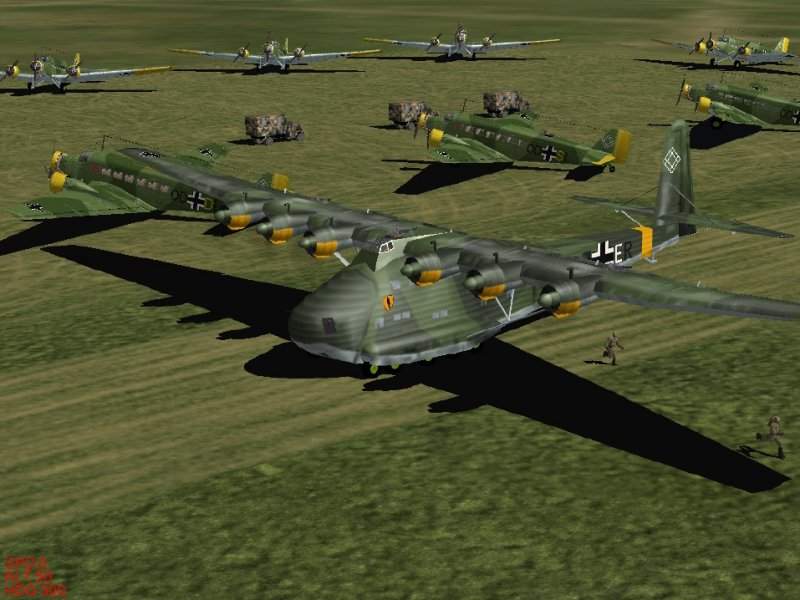
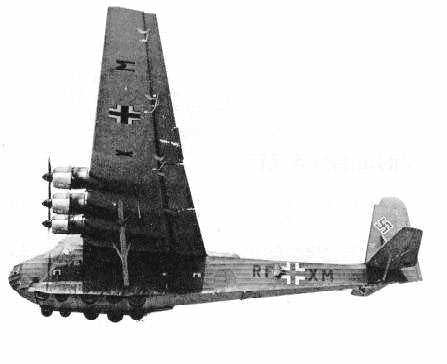
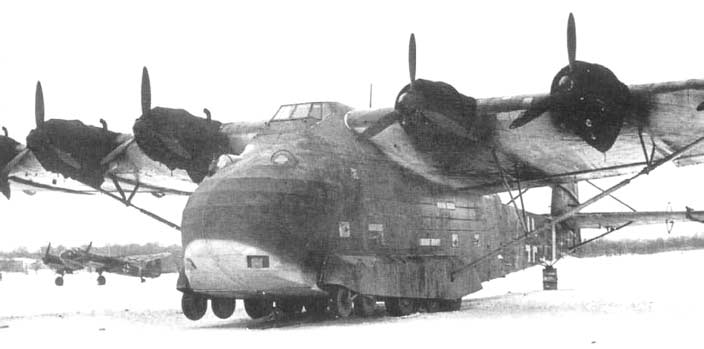
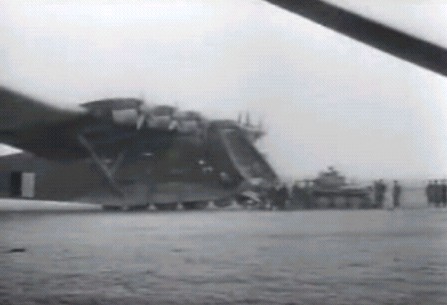
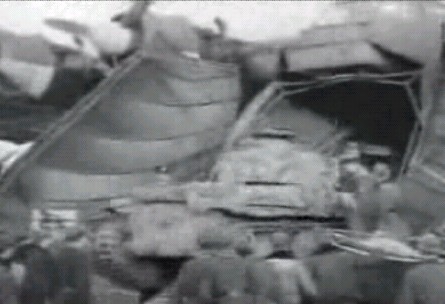
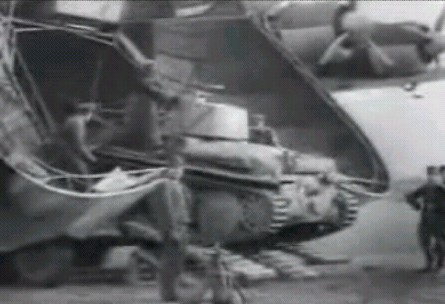
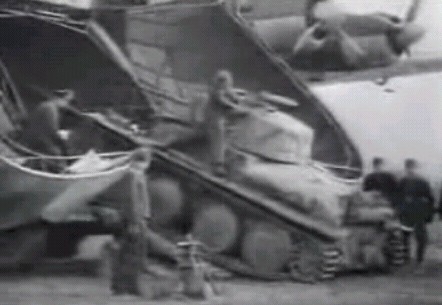
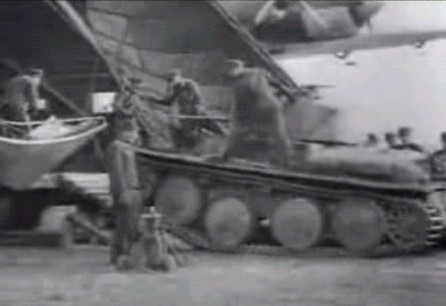
The German Airborne realized it needed at least a light machine gun "female" tank which can punch through defended positions that would stall foot-only paratroops. Not having even light tanks proved disastrous for the Allies at Arnhem, and nearly fatal for the Germans on Crete in 1941 who were saved by their towed recoilless rifles. The VK601 was a limited production run light tank the Germans fielded in small numbers in WW2. Had Germany invaded weakened Britain with the help of these light tanks they would have been a real threat to the tankless British Army, Home Guard and Auxiliary Units (AUs) who would have had to resort to "Molotov Cocktails" ie; expedient flame weapons at close-range to knock them out.
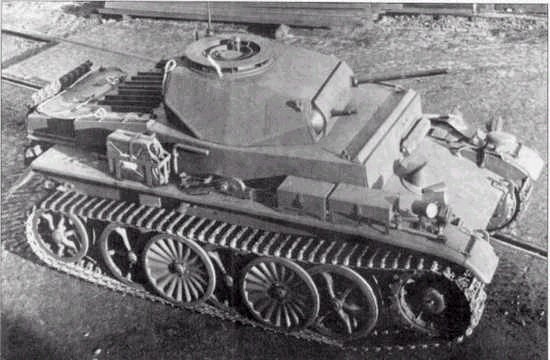
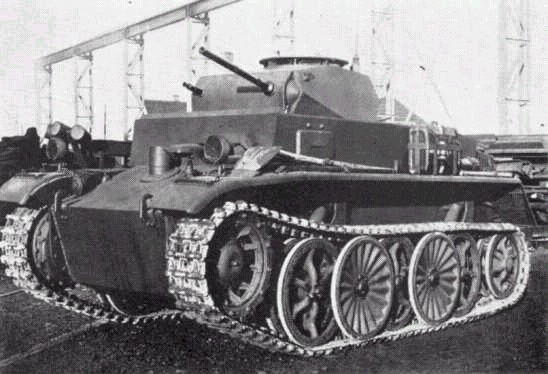
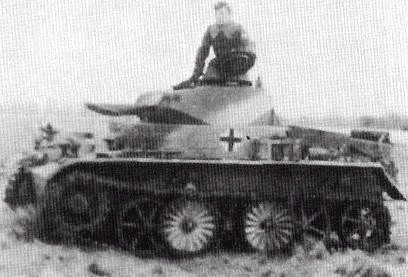
The Germans also didn't sit and whine that they were limited to light tank chassis--they placed BIGGER GUNS on top anyway like the Marder II depicted below.
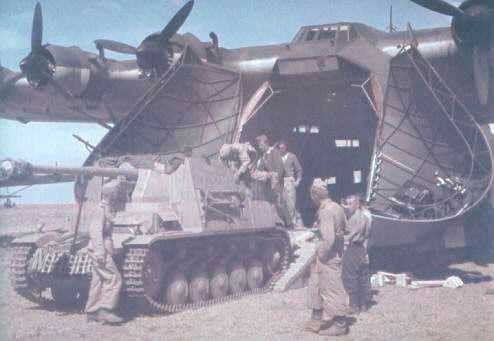
So what if the gun wasn't in a 360 degree revolving turret? The most successful tanks of WW2 and all time--were the German turretless STUGs. Its a good thing German thought Britain was going to remain neutral--or else these heavy gliders and light tanks would have been available to land and hose-down the tank-less British Army that had just escaped at Dunkirk thanks to Commander Ian Fleming's efforts.
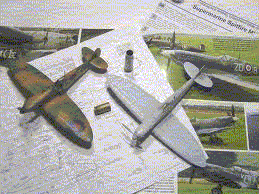 Build-A-Giant-Model of the Me-321/323
Build-A-Giant-Model of the Me-321/323
PLASTIC
squadron.com/product-p/it1115.htm
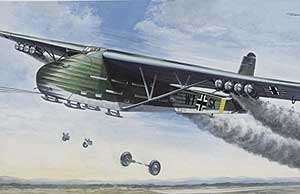
1:72 Italeri Me 321B-1 Gigant - IT1115
List Price: $85.00
Our Price: $76.50
Stock Status:In Stock
Product Code: IT1115
WWII German large transport glider, second production variant. Kit features fine raised panel lines, fabric-over-frame effects, basic cockpit with 2 seated aircrew, internal truss structure, separately molded control surfaces and flaps, takeoff trolleys, landing skids, RATO pods (x8), nose machine guns (x4), fine control actuators, and posable nose loading doors and rear fuselage doors. Decals and painting reference for 2 aircraft on the Eastern Front: 'W1+SX', 1941-1942 and 'W6+SW', 1942-1943.
RESIN
anigrand.com/AA4077_Me-321.htm

#AA-4077 1/144 scale Messerschmitt Me.321 Gigant Heavy glider for invasion of Britain & Russia
Model Kit Contents
Model Features
100 resin parts + Clear resin canopies, decals
Span: 382 mm
Length: 195 mm
Unit price: U.S.$98
Shipping charge: U.S.$16
Each model kit contents 1 set of decal. Extra decals can also be ordered.
Extra decal U.S. $2.00
In 1940, due to the preparations for the invasion of Britain and Russia, the Luftwaffe's Transport Command realized a need for a larger capacity cargo and troop-carrying aircraft. It was decided that the most cost-effective solution was to use giant gliders. Accordingly, the Luftwaffe issued a requirement for rapid development of a very large capacity transport glider to Junkers and Messerschmitt. Two proposals were accepted for construction as the Messerschmitt Me.321 Gigant and the Junkers Ju.322 Mammut. The Me.321 was to be built out of steel tubing framework, with wooden spars and covering of fabric. This allow for quick construction and easy repair. The Me.321 made its maiden flight in February 1941, towed by a Junkers Ju.90. Takeoff of the glider was difficulties, since the Ju.90 was not powerful enough. Heinkel responded by creating the He.111Z Zwilling which combined two He.111 bombers as better tug. The first Me.321 production aircraft entered service in May. In 1943, following the cancellation of the Stalingrad operation, some Me.321 were converted into the Me.323 with six engines.
Type: Heavy transport glider.
Purpose: Called for the glider to be capable of carrying either an 88mm gun plus its tractor, or a medium tank.
Span: 55m.
Length: 28.15m
Height: 8.30m.
Engine: None
Max.speed: 285 km/h
Crew: 5
Armament: 132 troops / 12 tonne load
PAPER
fiddlersgreen.net/models/aircraft/Messerschmitt-Me321.html
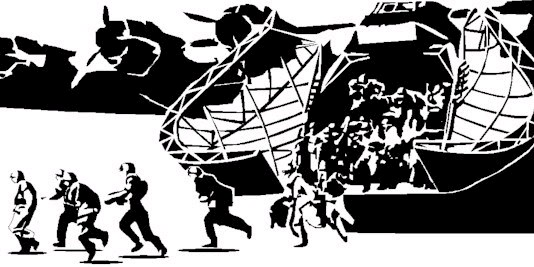
Britain Forces Germany to Fight Her; and Almost Loses Everything
Once Germany was at war with Britain, it became clear for the latter's survival that America had to be brought into the war. However, America had--and still has--a lot of people of German descent who are very pro-Nazi. Many Americans are clueless about the meaning of individual freedom as a way to arrive by debate at the best course of action but want instead a dictator/king/queen over them telling them what to do and when to do it. They came here only for economic--not religious and conscience freedom reasons. Churchill and FDR set a trap for the Japanese to attack at Pearl Harbor by moving the Pacific fleet there from San Diego and set-up William Stephenson's British Security Coordination (BSC) in New York to help sway American governmental and public opinion to fight Nazi Germany. The Rothschild Illuminati had created a monster in Hitler they did not have total control over, but they had just enough control over him at critical points to sabotage the German war effort with stupid decisions to save their skins. The cost of assisting in the creation of the Hitler monster was they actually lost WW2 and their Empire.
Many Germans saw immediately that war with Britain meant disaster for Germany. Even Hitler was suicidal and Hess had to save him. The Hess Me-110 flight to England with a desperate peace overture verifies this German desire to not fight Britain. And as the war dragged on, time and time again when Germany was on the verge of success, Hitler would draw back on cue and do the stupid thing, saving Britain and the Allies. That's because Hitler was a British agent. The last trick up their sleeve. Their final trump card against defeat. This is why many of the assassination plots against Hitler were thwarted by the allies. Hitler was their man.
Let's Speculate on What Could Have Happened...
Let's say Chamberlain does not issue the April Fool's day promise to Poland and Hitler invades them in 1939 still under the conception that Britain is neutral and complicit in their drive eastward. Stalin is alarmed and fortifies his border with German-held Poland. Does Hitler divert Stalin's attention by invading France and the low countries to appease his General's desire for WW1 revenge? I'd say not. Hitler is still not at war with the West. Hitler tells his Generals, RUSSIA FIRST. Then France. This is critical. If Germany attacks Russia first, there will be no invasion of France and the low countries.
1940, Hitler takes Denmark and Norway to secure his iron ore shipments from Sweden, and Russia fails in its attack on Finland worried about it being used as a jumping-off point by Germany to invade them.
If the Germans Prevail over Russia...
Hitler invades Russia in 1941 on schedule--but without being first weakened somewhat by a campaign in the West. Attributing greater German strength but more Russian vigilance--perhaps even a defensive posture instead of the offensive one Suvorov says Stalin was in to invade Germany-Poland--Hitler's maneuvering forces get even less close to reaching Moscow before Winter than what actually happened. However, Hitler is only fighting a ONE FRONT WAR. England and France are not fighting him behind his back nor is he wasting military power in the Mediterranean or North Africa. Its just an Eurasian war. Japan is fighting an Asian war but is not baited to attack Pearl Harbor. England and America re-arm to deal with the Germano-Russian war outcome. In WW1, Germany defeated Russia while fighting on two fronts. Fighting on only one front against a much stronger mechanized Soviet Union, I believe a stalemate would have been reached instead of the Germans being driven back all the way to Berlin. Russia and Germany would have deadlocked at Poland by 1944. Both sides would have fortified their lines into a stalemate. Hitler would have his living space but would have an intact and much deadlier Germany whose weapons labs would have operated without interference. Germany would field nuclear weapons and use them on the Russians, ending the war.
Meanwhile, America would explode its own atomic bomb to counter the Nazi's nuclear threat in 1945. An uneasy co-existence would follow where it would be the Western Democracies watching the Eastern Nazis brutalizing their imprisoned peoples much like the Soviet Communists did during the Cold War. The problem is that American Rockefeller Illuminati BIG BUSINESS is created the Nazis in the first place and Nazi subversion to take-over the United States with a large segment of the populace pro-Nazi would not be a McCarthy witch hunt. Add German victory over the Communists to the talking points of the AmeroNazis would make their BS even harder to refute on utilitarian grounds. The Nazi ideal that everyone is better off being a compliant robot would eventually take-over America which would discard its Constitution and join the Nazi Reich if war between the two could be avoided.
If the Russians Prevail over the Germans...
Could Russia at least defend her homeland from the Germans without Allied war material help?
This is the critical question.
If yes, Germany and Russia stalemate by 1944. If Russia were able to march on Berlin and break the stalemate before Germany could develop nuclear weapons, then we arrive at the exact same end-state as we saw in 1945 except without the West suffering grievous casualties, and the British Empire going broke. Nazi Germany would be destroyed and with it, its demented ideas. Communism would be weaker by 1945 than it was in actual history. Maybe no Cold War would have even followed.
If no, then the Germans prevail as described in the earlier scenario.
Was Poland, Chamberlain's Pearl Harbor?
Did Chamberlain con Britain into declaring war on Germany with the Polish promise in the same way FDR conned America by the Pearl Harbor baited attack? Did Chamberlain feel that Nazi Germany was too close in outlook to the West and felt he had to get us fighting the Nazis before it was too late and they became too successful? That unless we stood against Nazism immediately, we would be seduced by it, too? Did Chamberlain feel that unless the West began fighting Nazi Germany, it would prevail over Russia?
How important was the West in defeating Nazi Germany?
You'll notice I don't think Germany if it attacked Russia first would have defeated her quickly enough to get around to invading France and the Low countries. A long fight would have ensued and even if Germany prevailed it would have only been through some sort of weapon of mass destruction to get a permanent cease-fire. I don't think Nazi Germany could have conquered and kept the entire land mass of Russia.
So maybe if Chamberlain doesn't force the West to fight Hitler with the Polish promise, we NEVER would have got around to fighting Nazism?--especially if they got bogged down fighting monstrously large Russia and couldn't invade France for their WW1 revenge? Maybe it was more important to draw the moral line against Nazism before it was too late to effectively condemn it regardless of the cost? Would the Western allies have gone to war with their Nazi German neighbors over the Holocaust? Doubtful. Hitler would have said, "take these Jews from me if you like them so much". Mass murder would have given way to mass deportation. The Western nations wouldn't ever attack Germany unless directly threatened by them. Chamberlain's Polish promise was the way to force Germany to "attack Britain" by way of alliance if they were dead-set on keeping the former neutral. Talk about entangling alliances!
My Conclusion
After weighing in all the options, I believe like Winterbotham that the world would be a better place today--and all the times in-between--if Nazi Germany had been allowed to invade Russia as soon as possible to speed up her ruin. If Stalin's Russia began to falter, we could have sent Lend-Lease war materials to them and still stayed neutral to Germany--as American shipments to Britain proved. The result would have been the same as we experienced in 1945 with Russians in Berlin--or better yet a stand-off in Poland. As long as a weakened Hitler did not attack west, millions of lives and a world war could have been averted. Hitler would have his living space by recovering land from Poland lost in WW1. Eventually over time, the humiliation of the Nazi party at the hands of the Bolsheviks could have meant the German people removing them from power. Hitler needed to be bottled up, but the cork required was in the East not the West.
FEEDBACK!

PUBLIC:
Combat Reform: A Commitment to Military Excellence
PRIVATE: